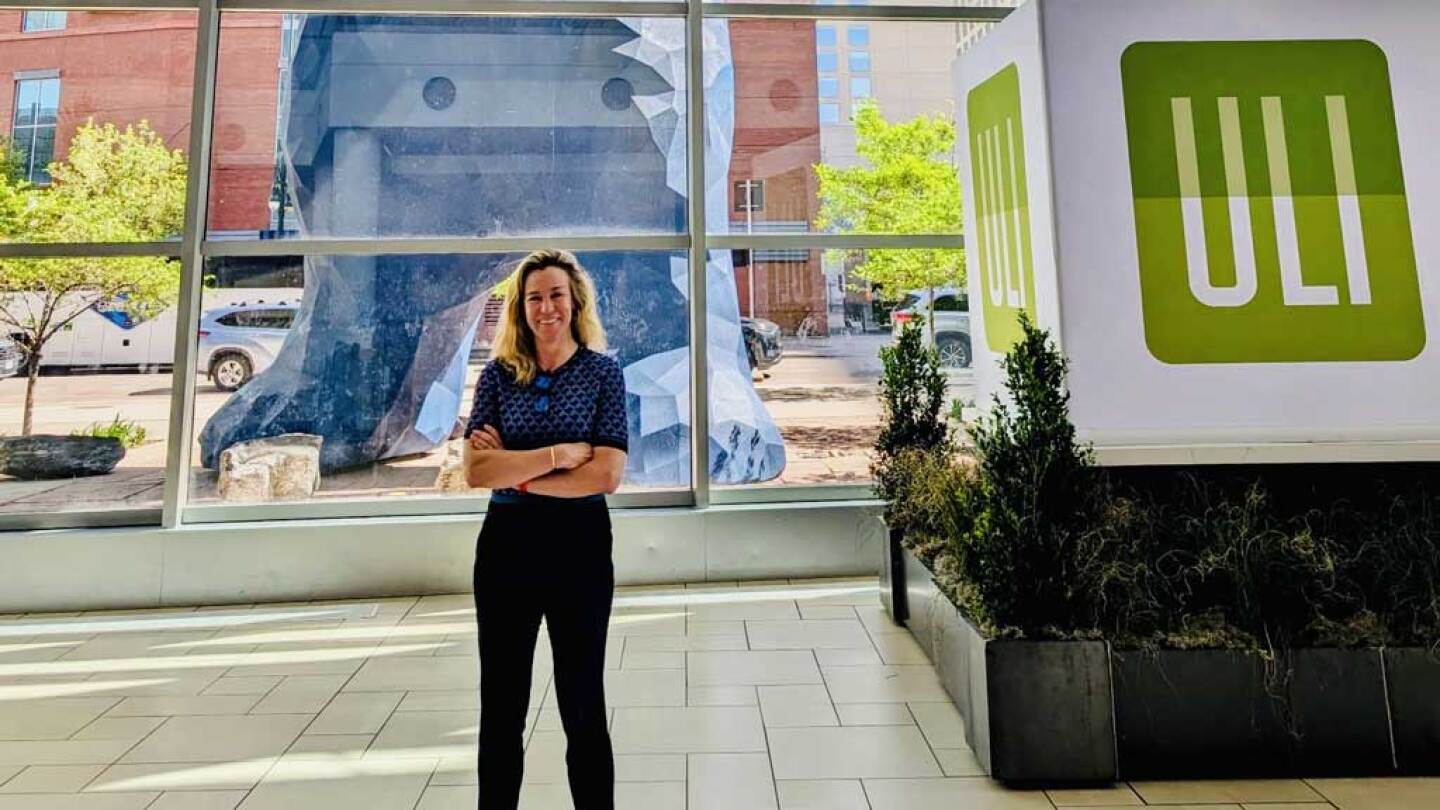A
imee Witteman, former U.S. Department of Energy official, joined the Urban Land Institute (ULI) in May 2025 as Chief Impact Officer. With a background in climate innovation, philanthropy and policy—having led Rewiring America, the Energy Foundation, the McKnight Foundation and DOE—she now heads ULI’s Centers, Initiatives and Advisory Services from Washington, D.C.
ULI is positioning itself at the crossroads of real‑estate, decarbonization and land use. Its new Impact Lab unites the Randall Lewis Center for Sustainability, the Terwilliger Center for Housing, the Center for Real Estate Economics and Capital Markets, and Advisory Service Panels to blend analysis, capital and technical aid. Programs such as Greenprint help owners track and cut portfolio carbon, while the Net Zero Initiative tests pathways for developers to meet aggressive clean‑energy targets.
Witteman notes that projects reducing emissions and risk—electrification, high‑performance buildings, resilient land use—are now rewarded with higher returns, stronger tenant demand and lower exposure. In Asia, ULI members are exploring green‑steel supply chains that could transform construction and emissions profiles. These climate strategies also dovetail with housing affordability, delivering lower costs, cleaner technology and greater resilience to communities.
The biggest hurdles are focus, adaptability and speed. The built environment accounts for nearly 40 % of global emissions, and a housing affordability crisis looms. ULI’s Advisory Service Panels, run with 52 local District Councils across the U.S., Canada and Mexico, test solutions on the ground, balancing sustainability and affordability. The Impact Lab remains nimble amid rapid political, economic and technological shifts—including AI—that reshape business and energy.
Witteman is optimistic because ULI uniquely brings capital, practitioners and the public sector together. Initiatives like Greenprint, the Net Zero Initiative and Asian market transformations prove that zero‑carbon, resilient, affordable communities make business sense. With trillions in assets under management, ULI members are deeply invested in community well‑being, creating catalytic change.
Impact will be measured by how members adopt new standards and technologies, how capital flows shift, and how communities benefit from healthier, lower‑carbon development. Sector‑wide progress will be tracked in energy‑use intensity, electrification, embodied‑carbon solutions and projects that merge emissions reduction with affordability.
From her DOE, McKnight and Rewiring America experience, Witteman learned that innovation thrives when policy, philanthropy and private capital converge. The ULI Impact Lab serves as that catalyst.
Real‑estate professionals seeking lower‑carbon projects should study existing momentum: Greenprint portfolios cutting costs, Advisory Panels designing resilient cities, and Asian pilots of green steel. The best advice is to spend time with innovators and doers.















